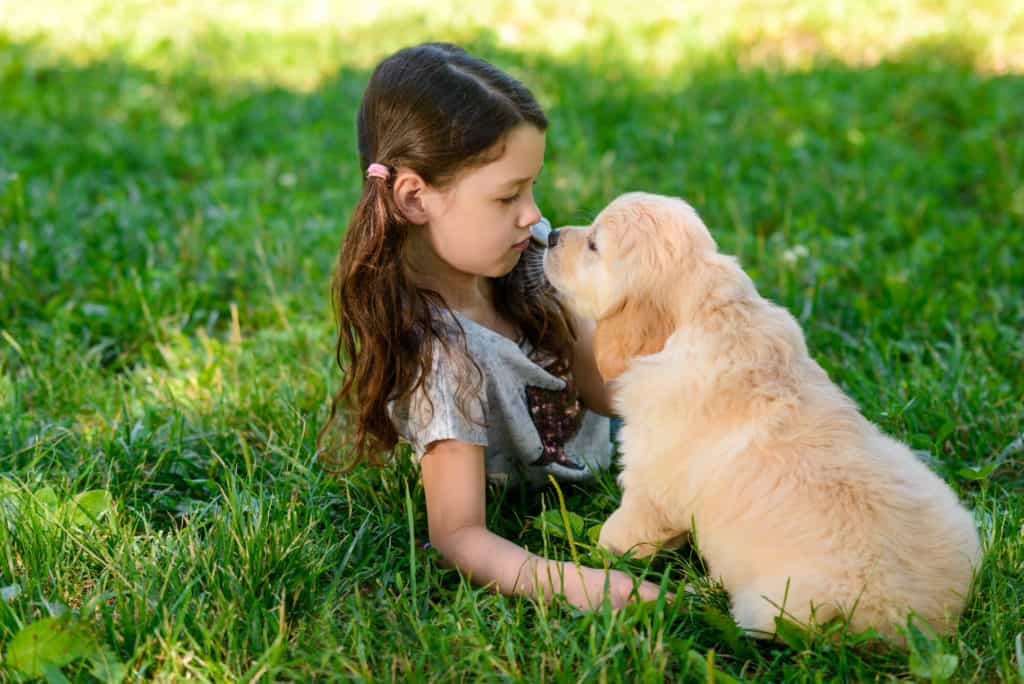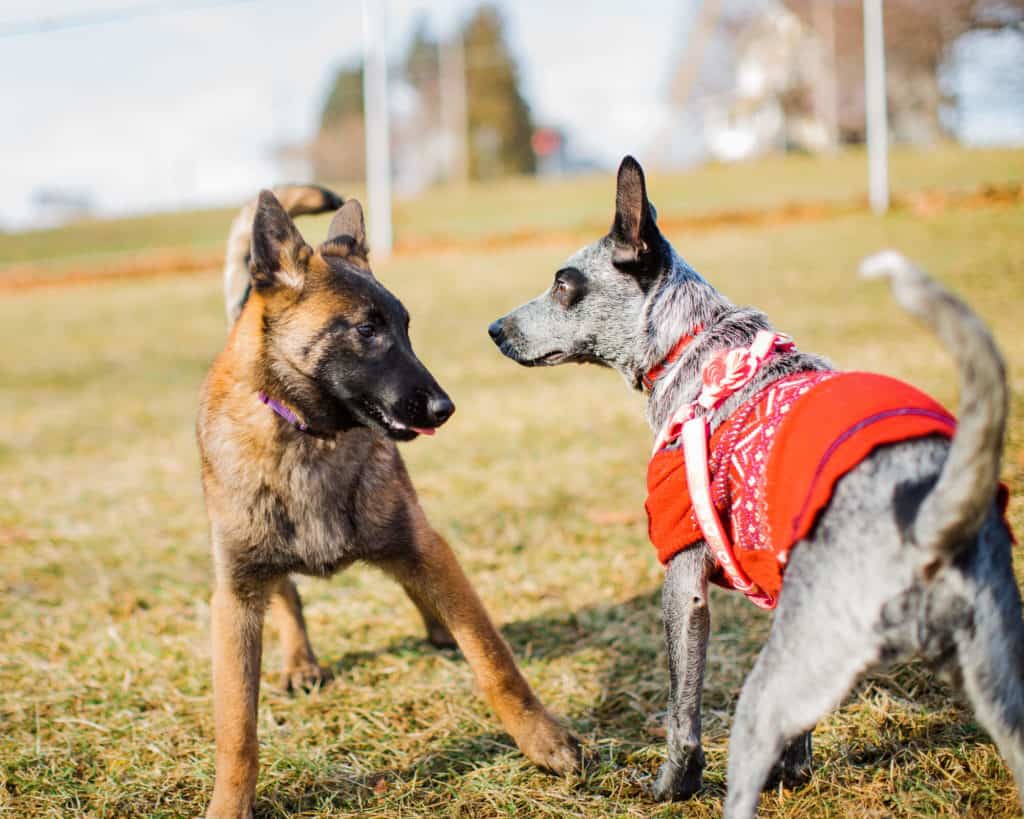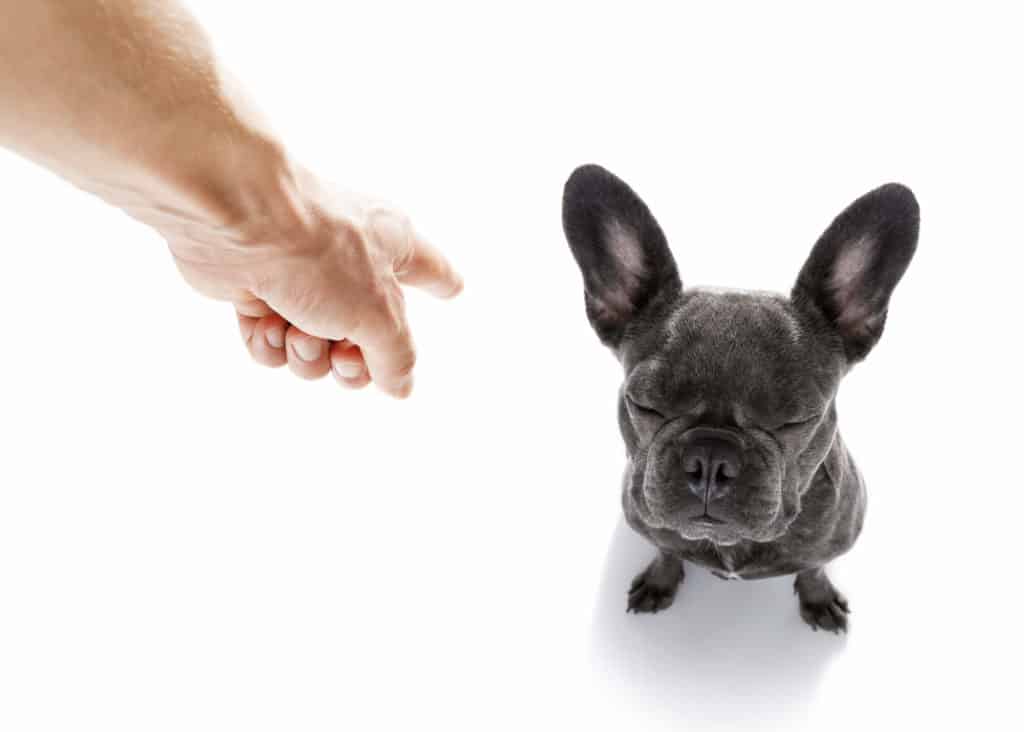A puppy might avoid his owner if there isn’t enough trust, quality time, or positive reinforcement in the relationship. You might also be confusing shy temperament and lack of socialization with hatred.
Dogs don’t outright hate humans very often. Yet, their behavior can leave you wondering: why does my puppy not like me, and how can I change that?
Helpful Dog Training Resource:
For help with training your dog, you should take a look at The Online Dog Trainer by Doggy Dan. Doggy Dan is an expert Dog Trainer based in New Zealand. His online resource contains Hundreds of Excellent Dog Training Videos that will take you step-by-step through the process of developing a healthy, happy well-behaved dog.
How Can You Tell If a Puppy Hates You?
Just because a puppy doesn’t cuddle you doesn’t mean he hates you. Instead, the reg flags to watch out for are little more obvious than just a lack of affection.
Here are common telltale signs to watch out for:
Observing
If your puppy is watching you from a distance, he could be wary. That means he doesn’t trust you yet, so he’s keeping his eye on you for safety.
To distinguish between that kind of behavior and healthy curiosity, test his tolerance for eye contact. For example, if a puppy hates (or fears) you, he might avoid looking directly into your eyes.

Cowering
There’s a difference between a puppy who’s not yet comfortable with you and a frightened one.
For instance, a pup might squirm, crouch, or freeze in place when you reach out to him. In that case, he may have had bad experiences with humans in the past.
Aggression
A bit of nibbling and play-bites are normal with any pup. However, there’s a deeper problem if you notice signs of a genuine defense mechanism.
For one, your dog might have aggression problems. On the other hand, it could point out that you’re triggering him with rough handling.
How Can You Get Your Pup to Like You Back?
Dealing with a not-so-affectionate puppy can be heart-wrenching, but it’s usually easier to tackle than with older dogs.
Here are a few tips that can get a pup to warm up to you:
Socialize the Puppy better

Instead of assuming that the dog hates you, start by checking his socializing. More often than not, that’s the culprit you need to tackle.
Usually, breeders socialize the pups as early as three weeks until they’re up for adoption.
This means they let the mother teach the litter what it means to be a dog. Then, they expose them to different stimuli (like other humans) until they’re ready for the real world.
However, if you pick the puppy up early, he might miss critical behavioral patterns and skills. That’s not irreparable, though.
To cut the hassle out, you can enroll him in a socialization class.
Alternatively, you can always take matters into your hands by gradually exposing the puppy to everyday objects around the house.
Don’t Force the Affection
A common mistake that new pet parents fall into is forcing affection.
As irresistible as your pooch may be, try your best not to shower him with love beyond his tolerance.
Instead, try this approach:
- Don’t invade the puppy’s space, but lure him in with treats.
- Test how far he’ll tolerate your pets.
- Reward him if he doesn’t push you away.
- Try again later till he’s comfortable with more touches.
- If he gets visibly upset, stop and give him some personal space.
Keep in mind that the dog’s tolerance for affection will largely depend on his breed and temperament.
For instance, German Shepherds are more likely to grow close to one person in particular. If someone else in the household has already taken that spot, you might need to settle for second place.
Spend Quality Time With the Pup
There are no hard-and-fast rules when it comes to pet temperament. That said, it’s safe to assume a puppy is more likely to enjoy your company if he associates you with a fun time.
That’s not always possible for dog owners who work full time.
However, you can try to make every moment you spend with the puppy count. The first few months can make all the difference in the affection between you two!
For instance, you can try regularly setting low-impact exercise routines and park walks. Getting a few interactive toys can help your little buddy explore his new home by your side.
The pup might be wary initially, but he’ll open up with time. Soon, he’ll welcome you back home with excitement and eagerness for your playtime!
Don’t Get Frustrated Quickly

While puppies are adorable, getting them to behave can be a challenge on its own. Sure, you need to train the puppy with rewards and punishments, but you can’t lose your temper at all.
Remember that punishing your dog without clear association will only make him wary of you.
So, before taking action, make sure that you’re calm and that your pup actually knows why he’s in time-out.
Many new dog owners can’t keep up with pet maintenance and training phases that require experience and patience. This usually includes house training, teeth cleaning, and bite inhibition.
If that’s the case for you, don’t hesitate to ask for help with your puppy.
Groomers, vets, and professional trainers can all help you with tedious chores. When the frustration is out of the relationship, it’ll be easier to work on building trust and affection.
Customize Your Approach
As you get to know your pup’s personality, you’ll be able to express your love better.
For instance, you might find out that he likes certain treats or chew toys over others. This could be your golden ticket to the puppy’s heart!
So, pay attention to how he plays and interacts with other people. If he’s more affectionate to other household members, you can also get some pointers from them.
Helpful Dog Health Resource:
Note: Our Health is #1 Priority. It should be no different for your dog. But you need to help him. The Ultimate Guide to Dog Health is the answer. This handy guide will help you recognize the symptoms of the health problems above. Get the knowledge to stay ahead of these terrible issues that can rob your lovely dog from vigor and life. Help your friend make it to 14 yrs+ without pain and suffering.
Praise Generously and Genuinely
Try to maintain a positive vibe throughout your quality time and not-so-fun training sessions.
Expressing that you love your puppy and are proud of him can help him open up to you more.
Just make sure you keep your praises short and repeat the exact phrase with a similar tone often. After all, dogs pick up on vibes and moods, not full sentences.
In fact, recent studies found that dogs can tell if praise is genuinely positive or fake. So, the last thing you want is your pup thinking that you’re not sincere!

Paul has been creating content for the dog niche for many years. The information he shares comes his first hand experience growing up in dog lovers household and then owning multiple dog breeds of his own as an adult. Paul enjoys doing the hard research to collect, analyze and present our dogtemperament.com readers with the best answers to their questions.